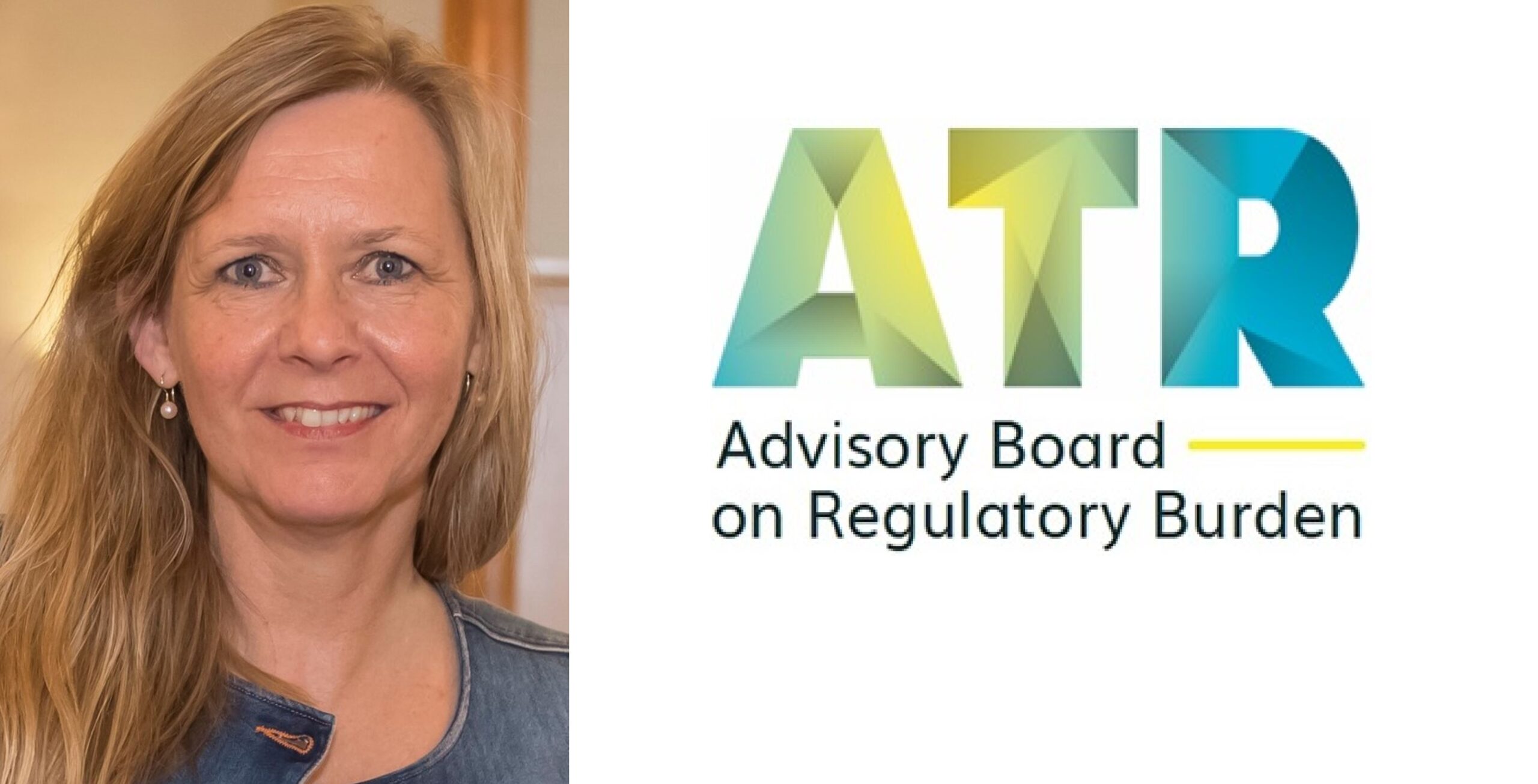In January, ATR (Advisory Board on Regulatory Burden) took over the chairmanship of RegWatchEurope (RWE) from the Swedish Better Regulation Council. We asked Marijke van Hees, ATR chair, to tell us about ATR and the RWE priorities under the Dutch chairmanship.
Marijke, many independent scrutiny bodies in Europe have had ATR as an inspiration in their establishment. Could you please describe the ATR, its tasks and composition?
The Netherlands is a pioneer in the systematic reduction of regulatory burdens on businesses and citizens. The now-near universal Standard Cost Model used to calculate administrative costs is a Dutch invention. In 2000, ATR’s predecessor ACTAL was founded as independent scrutiny body that advises government on the regulatory burden effects of new legislation. There may be a whiff of preaching to the choir here, but we really think that independent scrutiny is essential for our task as it allows us to express our views freely.
ATR consists of three Council Members and a Secretariat. I have been the Chair since the start of ATR in 2017. The other Council Members are Eric Janse de Jonge and Hayke Veldman. The Secretariat, which currently counts around 20 staff members, is led by Rudy van Zijp. Our main task is reviewing all new legislation coming from the central government. We do not only assess the estimated regulatory burden effects of a new legislative proposal, following the logic of the Standard Cost Model. Our assessment also involves an analysis on 1) whether the goals of the regulation are clearly stated and attainable, 2) whether alternatives have been considered, and 3) whether businesses or citizens will not be put under too much of a mental strain in making sense of the obligations imposed on them. We call the latter ‘workability’, and it encapsulates more subjective elements of regulatory burdens. Apart from this core task, our mandate has also come to involve the analysis of problems with regulatory burden in existing legislation.
Despite the Dutch tradition focusing on burden reduction where possible there is still work to be done. Our scrutiny continues to reveal a significant number of newly introduced laws that inadequately justify the need for new regulatory obligations, or why these are the least burdensome options for businesses and citizens. In this context, 60% of ATR’s opinions in 2023 (at total of 103) contained a negative advice involving the recommendation not to introduce the law. The ongoing scrutiny is vital to ensuring that new regulations are balanced and justified, and that the regulatory landscape continues to evolve in a way that minimises unnecessary burdens.
We understand that there are also some planned changes to the mandate of the ATR in order to reinforce its role further. What are the main changes?
As a result of an increased political attention to the necessity of regulatory burden reduction, our mandate will (most likely) undergo some changes. While the final decision depends on the outcome of the parliamentary process, the current proposal outlines three key developments.
First, ATR is set to become a permanent advisory body in the Netherlands for the first time. Second, our mandate will be expanded to include the scrutiny of legislative proposals from the European Commission. This will take place within an existing procedure by which the government informs parliament on new proposals, and states its preliminary position with a view to the subsequent negotiations. However, our scrutiny of European legislation will be somewhat more limited compared to national legislation, focusing solely on whether the regulatory burden effects have been adequately quantified. Third, with these expanded responsibilities, ATR will also receive increased funding, allowing us to grow and better fulfil our tasks.
These are apparently busy times for the ATR. On top of that, ATR is also chairing RegWatchEurope in 2024. What are your RWE priorities?
We are very happy to be chairing RWE this year. The Swedish reign was a fair and prosperous one. As successor we have been able to make a few new emphases. Together with RWE we also developed an ambitious work programme. In addition to the traditional focus of RWE on better regulation in general, we also aim to dedicate attention to specific pieces of European legislation – such as the CSRD, the CS3D, and the GDPR – from a regulatory burden perspective.
So far, we have organised a successful workshop on the implementation of the CS3D and a methodological conference on Cumulative Cost Assessments. At the end of the year there will also be a workshop on the inks between Better Regulation policy and scientific endeavours. In addition to organising workshops and conferences, we have initiated projects analysing the regulatory burden impacts of both the CSRD and GDPR, using them as case studies to highlight shortcomings in way that the EU takes into account regulatory burden impacts of legislative proposals in its better regulation framework. In both cases, the estimates provided in the ex-ante impact assessments differ significantly from the ex-post measurements, illustrating the need for improvement in how regulatory impacts are assessed at the European level.
Apart from new initiatives, RWE is currently drafting a letter towards the formation of the new Commission. In this letter we will express the hope that there will be even more attention paid to the Better Regulation aspects of European legislation and especially the connection with implementation at the national level. We believe RWE can play a significant role in bridging the European and national dimensions of Better Regulation, ensuring that European Impact Assessments are more useful in national scrutiny processes. Finally, RWE is also intensifying its collaboration with the OECD’s Regulatory Policy Division, further expanding our international cooperation on better regulation issues.

